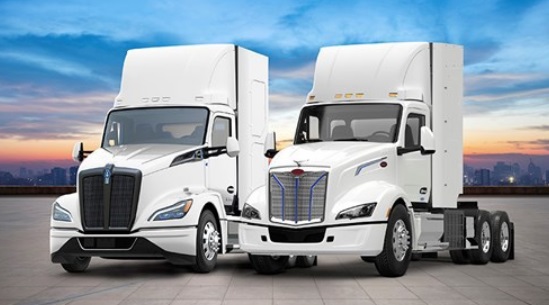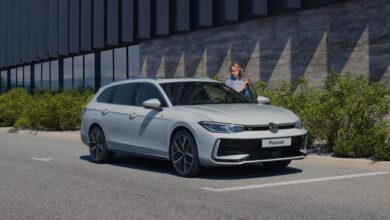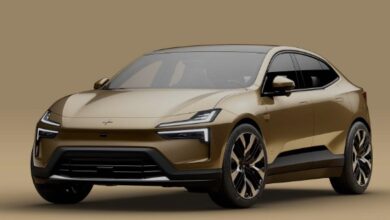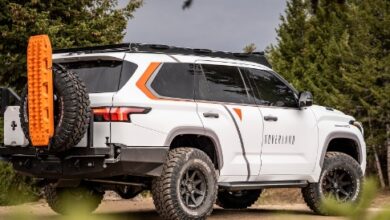paccar roe analyze

PACCAR Inc. (PCAR) is a global leader in the design, manufacture, and distribution of high-quality heavy-duty trucks. As the trucking industry evolves, PACCAR faces both challenges and opportunities. This article provides a detailed PACCAR stock analysis, focusing on its Return on Equity (ROE) over the past 10 years, financial performance, strategies for navigating technological advancements and competition, and its future outlook.
What is ROE, and Why Should PCAR Investors Care?
Return on Equity (ROE) is a critical financial metric that measures a company’s profitability relative to its shareholders’ equity. A higher ROE generally indicates efficient capital utilization and strong returns for investors holding PCAR stock. Understanding ROE is essential when evaluating PACCAR as a potential investment.
PACCAR’s ROE: A Decade of Strength and Stability
PACCAR has a history of robust financial performance, reflected in its consistent ROE over the past decade. Key highlights include:
- Consistent Profitability: PACCAR has maintained a track record of generating profits and positive ROE, even during economic downturns.
- Focus on Efficiency: The company emphasizes operational efficiency, cost control, and strong financial management, contributing to its healthy ROE.
- Dividend Payouts: PACCAR has a long history of returning value to shareholders through dividends, supported by its steady profitability.
- Adapting to Change: While maintaining its core business, PACCAR is investing in new technologies, including electric and autonomous vehicles, positioning itself for future growth.
Understanding PACCAR: Beyond the Trucks
To fully assess PACCAR’s investment potential, it’s essential to consider its strategic direction, strengths, weaknesses, and competitive landscape.
PACCAR’s Vision: Innovation and Customer Focus
PACCAR is committed to providing innovative transportation solutions that meet the evolving needs of its customers. This includes investments in:
- Alternative Fuel Vehicles: Developing electric, hydrogen fuel cell, and other alternative fuel vehicles to align with sustainability goals and regulatory requirements.
- Connected Truck Technologies: Enhancing its trucks with advanced connectivity features to improve efficiency, safety, and driver satisfaction.
- Autonomous Driving Technology: Exploring and developing autonomous driving solutions for the trucking industry.
Strengths of PACCAR
- Premium Brands: PACCAR owns renowned truck brands like Kenworth, Peterbilt, and DAF, known for their quality, durability, and performance.
- Global Presence: With manufacturing and distribution operations in North America, Europe, and Australia, PACCAR has a strong global footprint.
- Financial Strength: The company maintains a healthy financial position, with strong cash flow and low debt levels, supporting its consistent ROE.
- Dealer Network: PACCAR boasts an extensive and dedicated dealer network that provides strong customer support and service.
Weaknesses of PACCAR
- Cyclical Industry: The heavy-duty truck industry is cyclical, with demand fluctuating based on economic conditions. This variability can impact PACCAR’s revenue and ROE.
- Competition: PACCAR faces stiff competition from other major truck manufacturers, including Daimler Trucks, Volvo Trucks, and Navistar.
- Supply Chain Disruptions: Global supply chain challenges, such as semiconductor shortages, can adversely affect production and profitability.
PACCAR’s Competitors: The Heavyweights of Trucking
PACCAR operates in a competitive landscape with several significant players:
- Daimler Trucks: The world’s largest truck manufacturer, owner of brands like Freightliner and Mercedes-Benz Trucks.
- Volvo Trucks: A global leader in heavy-duty trucks, known for innovative technology and safety features.
- Navistar International: A major North American truck manufacturer, producing International brand trucks.
- Tesla: While new to the trucking sector, Tesla’s Semi electric truck poses a potential challenge for traditional manufacturers.
PACCAR’s Key Projects
- Electric and Hydrogen Fuel Cell Trucks: Developing and deploying electric and hydrogen-powered trucks for various applications.
- Connected Truck Platforms: Enhancing trucks with advanced connectivity features for improved fleet management and logistics.
- Autonomous Driving Research: Investing in R&D for autonomous driving technology tailored to the trucking industry.
PACCAR’s Future: Driving Towards a Technological Horizon
PACCAR’s future will depend on its ability to adapt to technological advancements, navigate economic cycles, and compete effectively in a global market. Key factors influencing its success include:
- Alternative Fuel Adoption: The pace at which electric, hydrogen, and alternative fuel trucks are adopted will be crucial for PACCAR’s growth.
- Autonomous Driving Development: The evolution and deployment of autonomous trucking technology could transform the industry.
- Global Economic Conditions: Economic growth and trade activity will continue to impact demand for heavy-duty trucks.
PACCAR’s strong financial position, established brands, and focus on innovation position it well for continued success in the evolving trucking industry. Its ability to adapt to technological change while maintaining a focus on customer needs will be vital in driving future ROE and shareholder value.
Should You Invest in PACCAR Stock?
PACCAR (PCAR) boasts a strong track record of profitability and shareholder returns. Its ROE has remained consistently strong over the past decade. However, the trucking industry is cyclical and faces disruptions from new technologies. Investors should carefully weigh these factors alongside PACCAR’s proven business model and strategic initiatives when considering an investment in its stock.





